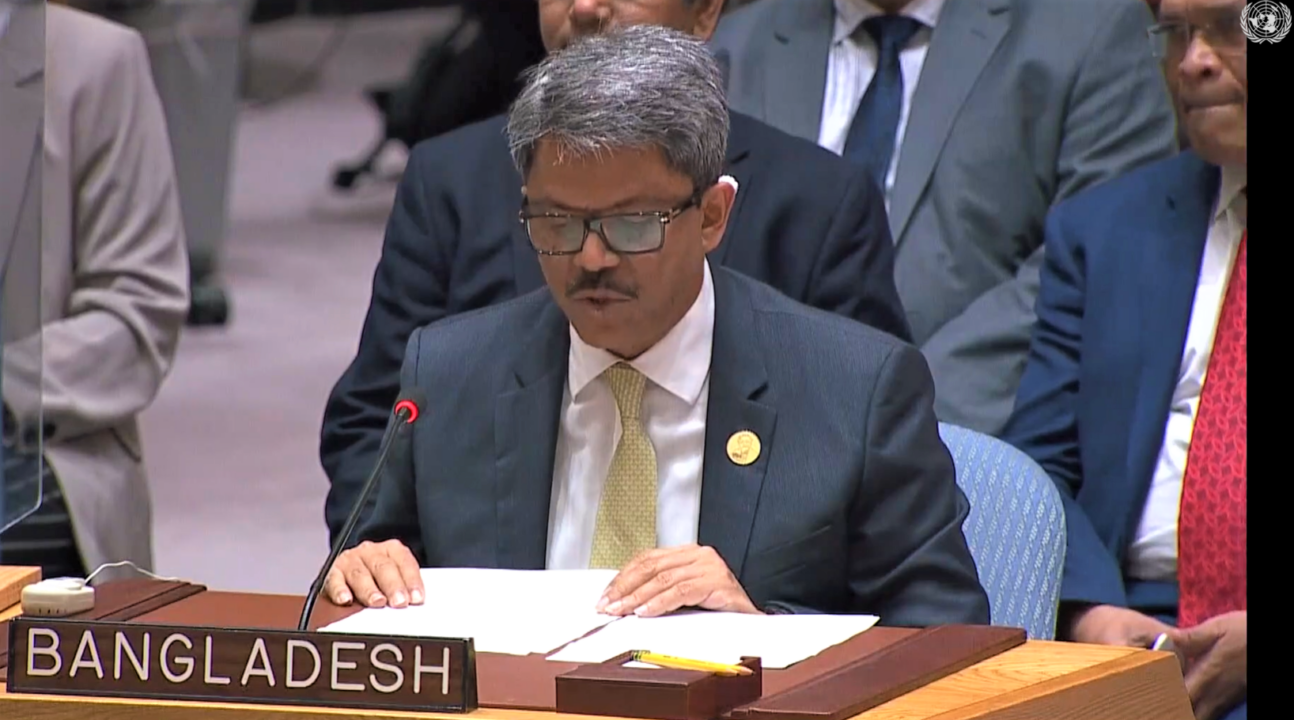Mr. President,
I thank you for convening this timely meeting on “conflict and food security”. I also thank the Secretary-General and the other briefers for their insightful remarks on this important issue. Global efforts for achieving a world without hunger have gone seriously off-track. The COVID-19 pandemic has reversed our decades of progress.
The 2021 State of Food Security and Nutrition Report by the FAO provide a sobering picture. A staggering number of at least 720 million people in the world faced hunger in 2020. The figure is around 118 million higher than 2019.
The war in Ukraine has made the situation worse. It has disrupted exports of food grains from Ukraine and Russia, and has fueled an alarming rise of food prices in the global market.
Mr. President,
The contribution of the agriculture sector to Bangladesh’s GDP is 13.61%. And it employs the biggest share of our labour force. Our government has adopted many bold policies to transform the agriculture sector and achieve food self-sufficiency. In turn, it contributed to promoting rural development, empowering the marginalized people, and protecting smallholder farmers.
And that has had a transformative impact in creating diversified value-chains in the food industry, in generating employment, and in eradicating poverty.
My Prime Minister has joined the Global Champions Group on Global Crisis Response set up by the Secretary General. We stand ready to share our good practices in agriculture and food security with countries in comparable situation.
Mr. President,
The 2030 Agenda promises a hunger-free world. We must work together to fulfill this vision and ensure that everyone, everywhere has access to sufficient, safe, and nutritious food.
Allow me to share some specific thoughts in this regard:
First, we need increased investments and targeted technology support from the developed countries in the agriculture sector to enhance productivity, and for effective food storage and distribution systems.
For that it is imperative to leverage existing international cooperation frameworks, including STI collaboration, and effective South-South and Triangular Cooperation.
Second, we need global solidarity to keep critical food delivery infrastructure, such as farms, markets, and food processing and storage facilities out of the harm’s way during conflicts. We encourage a cross-pillar approach within the UN system involving peace, development, and humanitarian actors to advance this agenda. The Peace Building Commission with its overarching mandate, as well as, convening and advisory roles can play a critical role in this regard.
Third, we must create a more efficient and reliable global food systems that would deliver safe, nutritious, and affordable food for all. It is imperative to eliminate trade restrictions and export subsidies by developed countries to create an open, functional, rules-based trading system.
Fourth, climate change and environmental degradation have detrimental impacts on agriculture and nutrition sectors. It is therefore, imperative to fulfill our climate commitments for creating a more resilient agriculture and food system.
Finally, we support the notion of the Security Council Resolution 2417 (2018) to ban ” starving of civilians as a method of warfare ” as well as to ensure unimpeded access of humanitarian actors during armed conflict. Now, more than ever, we must demonstrate global solidarity through real actions to tackle triple crisis of Covid, climate and conflict.
I thank you, Mr. President.

